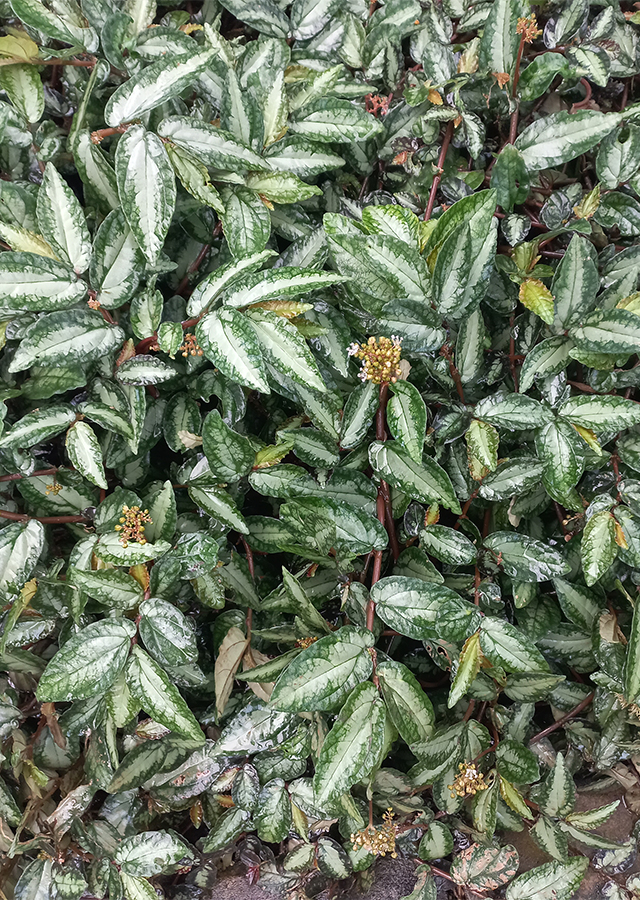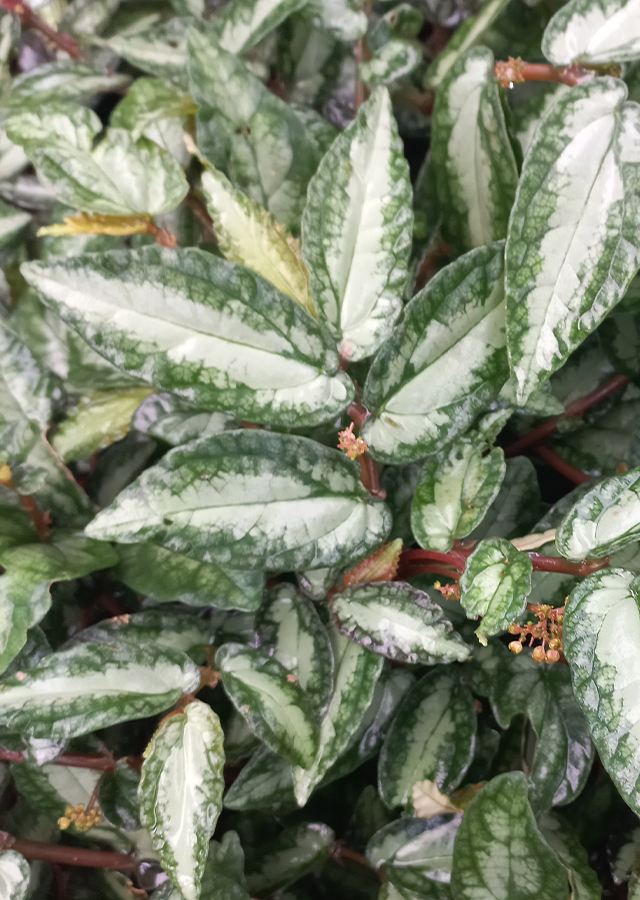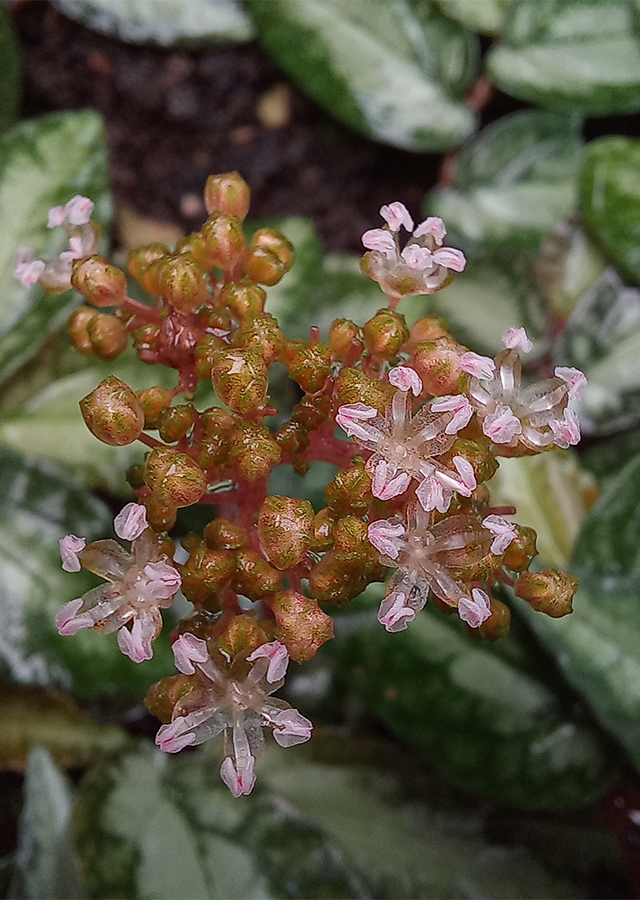Trailing Watermelon Begonia
Procris repens (Lour.) B.J.Conn & Hadiah
Urticaceae
Location in our garden
Green House



Synonym
Elatostema gibbosum Kurz
Elatostema pulchrum (N.E.Br.) Hallier f.
Elatostema repens (Lour.) Hallier f.
Habitus
Herbaceous. A creeper, perennial herbaceous plant that grows up to 0.6 m tall.
Part Used
The Whole Plant
Growing Requirements
Full Sunshine
Need Shade
Habitat
Forest
Terrestrial
Overview
Procris repens is native to South-East Asia. It is most often used as a houseplant, in terrariums, hanging baskets or, in agreeable climates, as a groundcover. It is typically grown for its lush and attractive foliage, which is also its only association with Begonias. This vining plant, commonly known as Trailing Watermelon Begonia, is related to neither the begonia nor the watermelon. But with leaf patterning reminiscent of small watermelon rinds on semi-succulent stems, it is easy to see how it took on this alternate name. Species epithet 'repens' means 'spreading' or 'creeping', a reference to the plant's growth habit. It has been used by Malays as traditional medicine.
Vernacular Names
Sisek naga (Malay).
Agroecology
This tropical plant grows on moist shady spots on rocks and the forest floors. Prefers consistently moist but well-drained soils and is prone to rot under constantly waterlogged conditions. It requires high humidity, so it is best cultivated enclosed within terrariums if placed in air-conditioned or cold-draughty locations. Grows easily in bright indirect light. Under full shade, the leaves remain almost completely green but when given more light, the leaves become water melon-patterned. Needed temperature to grow is 12-32 °C, and humidity is medium-high humidity (40-90%).
Morphology
- Stem - semi-fleshy stems are slightly zigzag, brownish, rooting at nodes upon contact with ground.
- Leaves - alternate, fleshy leaves have toothed or wavy leaf blades that are elliptic to oblong, and sometimes broadly egg-shaped, asymmetrically-cordate based, and 2.5–10 by 2–5 cm. The veins are mosaic-like on upper leaf surface, and distinctly reddish or brownish on lower surface. The stipules are pink-reddish, diamond-shaped, found at base of leaf petioles. Its leaf colour resembles watermelon rinds or the foliage of certain Begonias and are variable, ranging from grey-green in between brownish to purplish-green edges to almost totally brownish-green, and becoming completely purplish-brown with age.
- Flowers - tiny flowers are white or pink with a tinge of silver, and arranged in branched clusters. The staminate (male) inflorescences are 0.6 -3.0 cm across, and 2-14 cm long, with the male flowers bearing 5 tepals (indistinguishable petals and sepals) and 5 stamens. The pistillate (female) inflorescences are smaller (3 mm across), stalkless, with the female flowers bearing 5 tepals (as long as or longer than fruits).
- Fruit - tiny achenes, ovoid to ellipsoidal, tuberculate.
Cultivation
It is propagated vegetatively by stem cuttings - very easy to propagate that it roots at every node.
Chemical Constituents
No found data on this. Need further research.
Traditional Medicinal Uses
It is used by the Malays for poulticing boils, swollen areas, and the abdomen when it is painful. A decoction from the plant is used for rheumatism.
Part Used
Reference Sources
- Kew Royal Botanic Gardens. (No date). Plants of the world Online: Procris repens (Lour.) B.J.Conn & Hadiah. https://powo.science.kew.org/taxon/urn:lsid:ipni.org:names:77118256-1#synonyms. 10-04-2022.
- National Park of Singapore. (2022). Flora & Fauna Web: Procris repens (Lour.) B.J.Conn & Hadiah. https://www.nparks.gov.sg/florafaunaweb/flora/1/3/1388. 10-04-2022.
- North Carolina Cooperative Extension (No date). North Carolina Extension Gardener Plant Toolbox: Procris repens. https://plants.ces.ncsu.edu/plants/procris-repens/. 10-04-2022.
- Terrarium Tribe. (2022). Pellionia repens: Growing the Trailing Watermelon Begonia. https://terrariumtribe.com/terrarium-lants/pellionia-repens-trailing-watermelon-begonia/. 10-04-2022.

